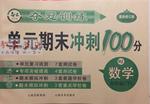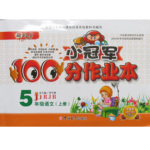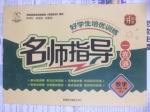题目内容
Having friends, and finding new friendships is an important developmental task for preteens and teens. While they have learned to play well with others during their childhood, developing independent friendships is a different thing. Preteens and teens will be allowed to use their own resources to decide whether to be someone’s friend or not, instead of being taught by their parents. Parents must give their teenagers some freedom in choosing who they want to hang out with.
You can help your teens to choose their friends, although it’s your teenagers who make the final decision. You can use teachable moments to talk about what makes a good friend. Here are some points to remember when you talk about friendships with your teenagers:
1) You are allowed to have many friends;
2) Honesty is important in a friendship;
3) Friends sometimes hurt each other, but they can say sorry and forgive(原谅);
4) Friends can influence each other, sometimes they will help you but sometimes they will hurt you, too.
5) Who you choose to be your friend is important, so choose wisely;
6) It takes many learned skills to make and keep a friendship, and it also takes many skills to end a friendship;
7) It is okay and even helpful to make friends with the opposite gender(异性);
8) It takes time to make a good friend, but it is worth the effort;
9) Spending time together will help you get to know your friends well and you will feel comfortable sharing feelings;
10) A good friendship will make you feel good about yourself.
小题1:What should their parents do when teenagers make friends?
小题2:Which point is about how to end a friendship?
小题3:Which of the following is NOT needed in making friends?
小题4:Who is the passage mainly written for?
小题5:Which of the following statement is true?
You can help your teens to choose their friends, although it’s your teenagers who make the final decision. You can use teachable moments to talk about what makes a good friend. Here are some points to remember when you talk about friendships with your teenagers:
1) You are allowed to have many friends;
2) Honesty is important in a friendship;
3) Friends sometimes hurt each other, but they can say sorry and forgive(原谅);
4) Friends can influence each other, sometimes they will help you but sometimes they will hurt you, too.
5) Who you choose to be your friend is important, so choose wisely;
6) It takes many learned skills to make and keep a friendship, and it also takes many skills to end a friendship;
7) It is okay and even helpful to make friends with the opposite gender(异性);
8) It takes time to make a good friend, but it is worth the effort;
9) Spending time together will help you get to know your friends well and you will feel comfortable sharing feelings;
10) A good friendship will make you feel good about yourself.
小题1:What should their parents do when teenagers make friends?
| A.Do nothing but give them all the freedom. |
| B.Talk with them and give some help. |
| C.Decide and choose friends for them. |
| D.Stop them from making friends with opposite gender. |
| A.Point 3. | B.Point 4. | C.Point 5. | D.Point 6. |
| A.Honesty. | B.Effort. | C.Lies. | D.Skills. |
| A.Teachers. | B.Parents. | C.Preteens. | D.Teens. |
| A.Friends never hurt each other. |
| B.There is no need to forgive friends. |
| C.Teenagers are allowed to have many friends. |
| D.Girls should never make friends with boys. |
小题1:B
小题2:D
小题3:C
小题4:B
小题5:C
试题分析:短文大意:这篇短文主要讲述了青少年的交友问题,作者向家长朋友们提出了关于如何应对青少年交友的建议.
小题1:推理判断题.根据短文第一二段描述,可知的当青少年开始交朋友时,父母们应该和他们谈谈话,并提供适当的帮助.故选B.
小题2:细节理解题.根据6) It takes many learned skills to make and keep a friendship, and it also takes many skills to end a friendship.描述,可知保持一段友谊需要艺术,结束一段友谊也需要艺术.故选D.
小题3:主旨大意题.阅读短文可知,在和朋友交往过程中需要正直,诚实,自己的努力和交友的艺术.而不能用谎言进行欺骗,故选C.
小题4:主旨大意题.阅读短文可知,这篇短文主要告诉家长们如何应对孩子们的交友问题.故选B.
小题5:细节理解题. 1) You are allowed to have many friends;描述,可知青少年是允许有许多朋友的.故选C.

练习册系列答案
 夺冠训练单元期末冲刺100分系列答案
夺冠训练单元期末冲刺100分系列答案 新思维小冠军100分作业本系列答案
新思维小冠军100分作业本系列答案 名师指导一卷通系列答案
名师指导一卷通系列答案
相关题目



